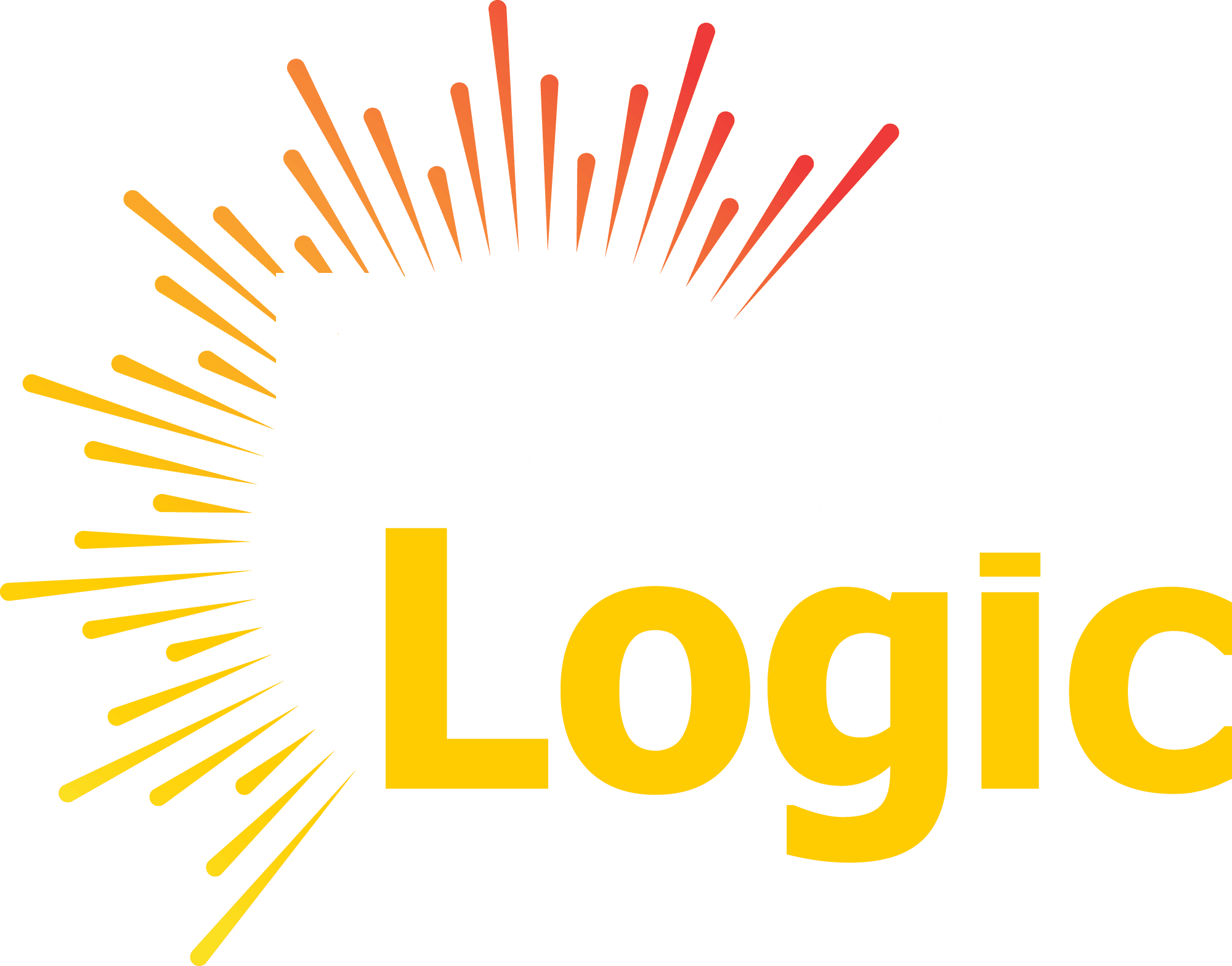In the vast expanse of the internet, finding what we need can feel like searching for a needle in a haystack. However, the enchantment of semantic keywords emerges as our guiding light in this digital wilderness. These aren’t just any old keywords; they’re the secret sauce that makes search engines like Google understand not just what we type but what we mean. Explore semantic keywords and discover their power.

Table of Content
- Understanding Semantic Keywords
- What are Semantic Keywords Examples?
- How to Get Started With Semantic Keywords
- Unlocking the Enigma of Semantically Related Keywords
- Go semantic with your search
Understanding Semantic Keywords
Semantic keywords are words or phrases that hold significance within a specific context, carrying meaning beyond their literal definitions. In the domain of search engine optimization (SEO), grasping semantic keywords is crucial for crafting content that connects effectively with both users and search engines.
Traditional SEO practices once focused solely on exact keyword matches, but search algorithms have evolved to prioritize user intent and context. Semantic keywords help search engines comprehend the topic and purpose of content more accurately, leading to improved search result rankings.
Semantic keywords function based on semantic search principles, aiming to comprehend the underlying intent of a user’s inquiry rather than solely relying on keyword matching. For instance, if a user searches for “best Italian restaurants,” search engines don’t just look for web pages containing those exact words; they aim to deliver results that satisfy the user’s desire for information about quality Italian dining establishments.
To leverage semantic keywords effectively, content creators must conduct thorough research to identify related terms and concepts that align with their target audience’s interests and search behavior. This involves exploring synonyms, alternatives, and associated phrases utilizing tools such as Google’s Keyword Planner, SEMrush, or Moz Keyword Explorer.
Moreover, understanding the context in which semantic keywords are used is crucial. Contextual relevance ensures that content comprehensively addresses user’s needs, enhancing its value and authority.
Semantic keywords are crucial in both natural language processing (NLP) and voice search. With the rising popularity of voice-activated assistants such as Siri and Google Assistant, it’s imperative to optimize content for conversational queries and long-tail keywords. Semantic keywords help content rank well for voice searches by mirroring the way people naturally speak.
Picture this: you’re planning a road trip, and you’ve plugged your destination into the GPS. Now, instead of just following the rigid directions, wouldn’t it be great if the GPS could understand your overall journey plan and suggest various scenic routes, pit stops, and attractions along the way? In essence, semantic keywords make search engines more efficient.
The Evolution of Search Engines
Back in the day, search engines relied heavily on exact-match keywords. If you were looking for a bakery, you’d type in “bakery” and hope for the best. But as search engines evolved, so did user behavior. People started typing in more conversational queries like “Where can I find a cozy bakery with freshly baked croissants?” This shift prompted search engines to become smarter in understanding context and intent, giving birth to the era of semantic search.
Semantic Search vs. Traditional Search
Think of traditional search as a strict librarian who only retrieves books based on exact titles or authors. On the other hand, semantic search is like a savvy librarian who not only fetches the exact book you asked for but also recommends similar books based on genre, themes, and author style. In essence, semantic keywords are like the key phrases that unlock this treasure trove of information.
What are Semantic Keywords Examples?
Semantic keywords are words or phrases intricately linked in meaning to a specific topic or concept. They surpass mere keyword matching by considering the context and intent behind the search query. Here are some examples to illustrate semantic keywords:
- Topic: “Healthy Eating”
- Semantic Keywords: nutrition, balanced diet, organic food, dietary habits, wellness, wholesome eating
- Topic: “Artificial Intelligence”
- Semantic Keywords: machine learning, neural networks, deep learning, natural language processing, AI algorithms
- Topic: “Travel”
- Semantic Keywords: tourism destinations, vacation planning, travel experiences, sightseeing, adventure trips
- Topic: “Climate Change”
- Semantic Keywords: global warming, greenhouse gases, renewable energy, carbon footprint, environmental sustainability
When conducting semantic keyword research, it’s essential to consider not only the primary keywords but also the semantically related words that can enhance the relevance and depth of your content. By incorporating these terms strategically, you can improve your content’s visibility and reach a broader audience interested in the topic.
How to Get Started With Semantic Keywords
Getting started with semantic keywords involves understanding the context and relationships between words to enhance the relevance and depth of your content. Semantic keywords transcend simple phrase matching, delving into the underlying meaning and purpose of the language employed. Below is a detailed roadmap to initiate your exploration of harnessing semantic keywords with precision.
1. Understanding Semantic Keywords:
- Definition: Semantic keywords are words or phrases that are closely related in meaning to your primary keywords.
- Importance: This leads to improved rankings and relevance in search results since search engines are able to understand the context of your content better.
2. Keyword Research:
- Semantic Keyword Research: Start by identifying your primary keywords using traditional keyword research tools.
- Expand Keyword List: Use tools like semantic keyword generators or related searches in search engines to discover semantically related keywords.
- Analyze Competitors: Study the content of your competitors to identify the semantic keywords they are using effectively.
3. Content Optimization:
- Natural Integration: Enhance the relevance of your content by seamlessly incorporating semantic keywords.
- Variety: Use a variety of semantically related words and phrases throughout your content to provide depth and context.
- Semantic Clusters: Group semantically related keywords into clusters to create comprehensive content around specific topics.
4. Semantic SEO Tools:
- LSI Keywords: Employ LSI keywords to discover closely related terms, enriching the relevance of your content.
- Natural Language Processing (NLP) Tools: Harness NLP tools for dissecting the semantic connections among words and phrases within your content.
- Schema Markup: Employ schema markup to furnish search engines with supplementary context regarding your content, thereby boosting its semantic significance.
5. Content Creation Guidelines:
- User Intent: Concentrate on grasping the purpose driving user searches and customize your content to meet those needs.
- Quality Content: Give top priority to producing top-notch, educational content that meets user inquiries and delivers significant value.
- Structured Data: Arrange your content utilizing appropriate headings, bullet points, and formatting strategies to boost readability and comprehension.
6. Monitoring and Optimization:
- Analytics: Monitor the performance of your content using analytics tools to identify opportunities for optimization.
- Iterative Approach: Continuously refine and optimize your content by incorporating feedback from analytics and user interactions.
- Stay Updated: Stay up-to-date with shifts in search engine algorithms and developments in semantic keyword research to adjust your strategy accordingly.
Integrating semantic keywords into your content strategy boosts your website’s visibility, draws in focused traffic, and elevates the user experience. Prioritize creating valuable, contextually relevant content instead of simply keyword stuffing. This approach resonates with both your audience and search engines.
Exploring the Craft of Semantic Keyword Research
Understanding the essence of semantic keywords marks a pivotal step in navigating the digital landscape effectively. Now, let’s delve into the art of conducting meticulous semantic keyword research to harness its full potential.
Empathize with Your Audience
To embark on successful semantic keyword research, it’s imperative to empathize with your target audience. Immerse yourself in their perspective. What queries occupy their minds? What challenges do they seek solutions for? By deciphering their intent, you unlock a treasure trove of semantically related keywords tailored to resonate with their needs and aspirations.
Harness the Power of Tools and Analytics
Equip yourself with the right arsenal to unearth semantic keyword gems. Tools like Google Keyword Planner, SEMrush, and Ahrefs serve as indispensable companions on this journey. They offer invaluable insights into semantic keyword variations and search volume trends, empowering you to make data-driven decisions. Moreover, delving into your website’s analytics unveils the lexicon visitors employ to discover your content, providing valuable clues for semantic keyword exploration.
Embrace the Versatility of Long-Tail Keywords
In the realm of semantic keyword research, long-tail keywords reign supreme. These phrases, often comprising three or more words, epitomize specificity and cater to niche markets. Rather than fixating on generic terms like “cat food,” embrace the intricacies of long-tail variations such as “organic grain-free cat food for senior cats.” Not only do they exhibit semantic relevance, but they also offer lower competition, presenting a ripe opportunity to carve a distinctive presence in your domain.
Crafting Compelling Content with Semantic Keywords
Armed with a repertoire of semantically related keywords, the next stride involves infusing them seamlessly into your content. Strive for a natural integration that enhances readability and coherence while enriching the semantic depth of your material. Maintaining the equilibrium between keyword density and user experience remains crucial. Your content should resonate genuinely with both search engines and human readers, ensuring an authentic connection.
Fostering Semantic Connectivity Across Content Ecosystems
Unlock the true potential of semantic keywords by fostering interconnectivity across your content ecosystem. Seamlessly interlink articles, blog posts, and landing pages, weaving a cohesive narrative that reflects the semantic tapestry of your brand. By establishing semantic relationships between disparate pieces of content, you amplify your digital footprint and augment the discoverability of your online assets.
Continuous Iteration and Optimization
Semantic keyword research is an iterative process, requiring continual refinement and optimization. Stay attuned to evolving search trends, user behaviors, and industry dynamics, adapting your semantic keyword strategy accordingly. Leverage the insights gleaned from analytics tools to fine-tune your approach, perpetually striving for greater relevance and resonance in the ever-shifting digital landscape.
You can unlock unparalleled opportunities in the digital world by mastering the art of semantic keyword research. By empathizing with your audience, harnessing powerful tools and analytics, embracing long-tail keywords, and fostering semantic connectivity across your content ecosystem, you pave the path to sustained visibility, engagement, and success. Stay agile, stay curious, and let the semantic journey unfold, leading you to new horizons of digital excellence.
Unlocking the Enigma of Semantically Related Keywords
Once you’ve delved into the realm of semantic keywords, it’s time to uncover the magic they hold. Picture yourself as the proprietor of an online emporium dedicated to feline companions, specializing in an array of cat-centric products. While “cat food” may serve as your primary keyword, the allure of semantic keyword research unveils a treasure trove of interconnected terms. These gems include “kitten nutrition,” “grain-free cat food,” and “top wet cat food brands.”
Elevating User Engagement and Satisfaction
The incorporation of such semantically related keywords transcends the realm of mere search engine optimization. It’s about crafting an enriched user experience. Imagine a discerning cat parent embarking on a quest for the finest wet cat food brands. Upon stumbling upon your website, they are greeted with a comprehensive guide detailing the nuances of various brands. As a result, your search engine rankings increase and your expertise becomes more credible. Consequently, the likelihood of them making a purchase surges exponentially.
Unraveling the Potency of Semantically Related Words
Now, let’s redirect our focus to our fictitious feline haven, “PartsLogic.” Picture a pet enthusiast navigating through your virtual aisles, their mind brimming with curiosity yet devoid of a specific destination. They decide to put your site’s search functionality to the test and type in the query “cat toys.” Ah, but here lies the crux of the matter. With your website meticulously infused with semantically related terms such as “feline playthings,” “interactive cat toys,” and “kitty entertainment,” PartsLogic metamorphoses into their veritable sanctuary for all things cat-related.
In essence, the magic of semantically related keywords lies not only in their capacity to boost search engine visibility but also in their ability to enrich the user journey. These terms act as digital signposts, leading users through a vast sea of information online. By smoothly incorporating them into your content plan, you open the path to better visibility and higher interaction levels.
As you venture into the realm of digital visibility, don’t forget to leverage the influence of semantic keywords. They are not mere strings of text but rather conduits that bridge the gap between user intent and content relevance. Embrace them, wield them wisely, and watch as your online presence flourishes amidst the ever-expanding digital horizon.
Go semantic with your search
Congratulations! You’re now equipped with the knowledge of how semantically related keywords can significantly impact the quality of search results.
By integrating semantic keyword considerations into your search strategy and content, you can impress users or shoppers by presenting them with the most relevant results, ultimately enhancing your ROI.
Here at PartsLogic, our satisfied clients can attest to our expertise in this field. We specialize in providing scalable, secure enterprise-level semantic search solutions. Leveraging cutting-edge vector search technology, we utilize proven, machine learning-driven techniques to deliver enriching user experiences.
We’re here to assist you in:
- Crafting exceptional experiences for your website visitors or app users
- Streamlining the search process, reducing the time it takes for people to discover what they truly desire
- Empowering your searchers to uncover exciting new discoveries
Are you ready to explore how semantic keyword integration in search can drive meaningful improvements in your bottom line? Don’t hesitate to reach out to us today. Let’s embark on this journey together.






One Response
You really make iit appear sso easy together with your presentation however I find his topic to be really something which I fel I’d never
understand. It kind of feels too complicated and extremely vast for me.
I am having a look ahead for your subsequent post,
I’ll try to get the hold of it! https://waste-Ndc.pro/community/profile/tressa79906983/